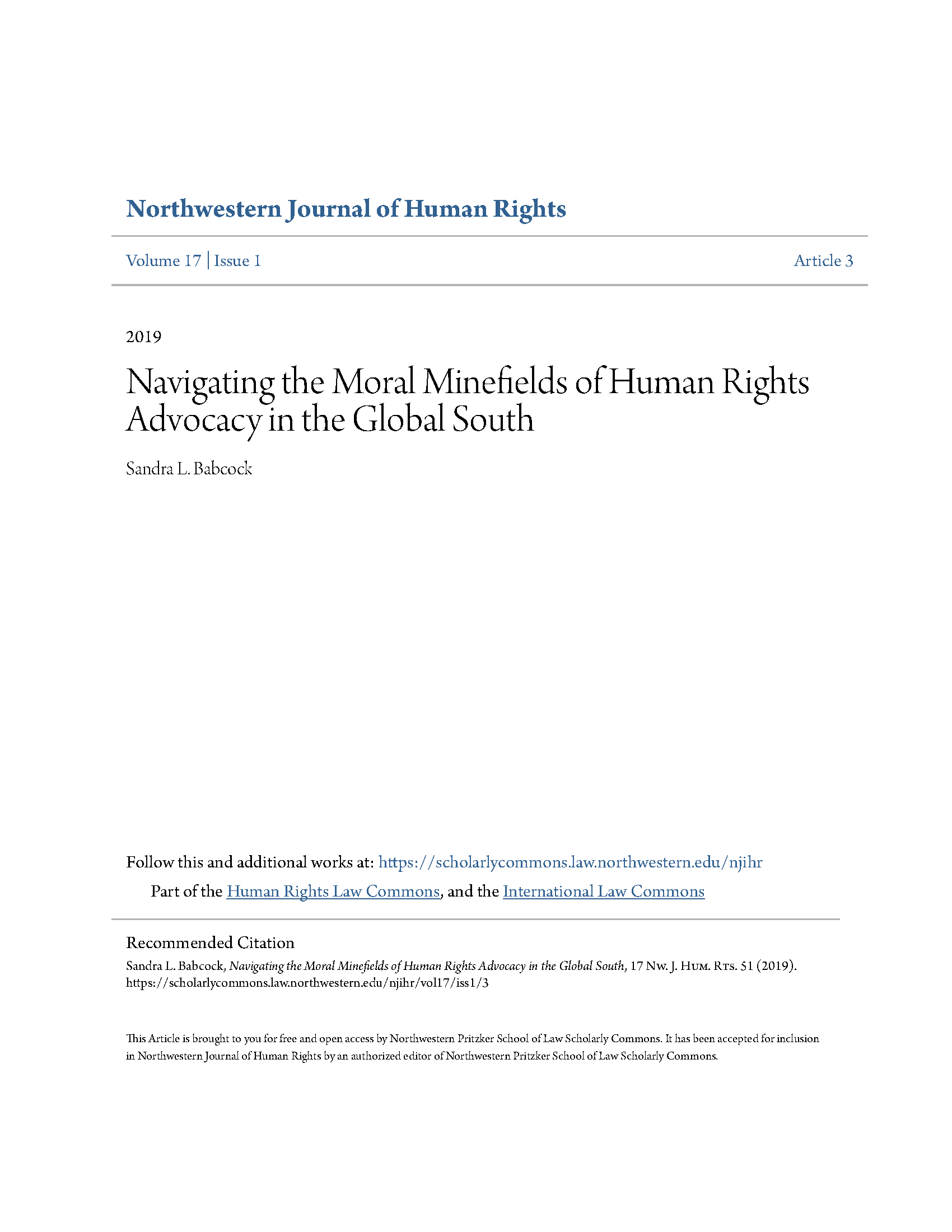Explorer les limites morales de la défense des droits humains dans les pays Sud

Explorer les limites morales de la défense des droits humains dans les pays Sud
This essay is guided by the concept of “reflective equilibrium,” a process that “involves going back and forth between our beliefs in the form of carefully considered judgments in response to a range of cases, the ethical principles that underlie those judgments, and the general theoretical considerations that support the ethical principles.” At a more prosaic level, it is an attempt to put into narrative form a sometimes disjointed and confusing amalgamation of experiences. As Kennedy notes, this gives rise to certain narrative choices that may ultimately obscure “the muddle of practice, experienced as a mix of intuition, confusion, and quick thinking” that sometimes characterizes human rights lawyering. But narrative choices are essential to any good story, and this article is, in essence, a tale about a human rights lawyer and her students who embarked on a journey of human rights advocacy in a foreign legal system. Along the way, they made good and bad decisions, were able to escape harm, and learned valuable lessons about their limits and potential. It is these lessons, many of them painful, that inspired this writing.
Texte intégral
Explorer les limites morales de la défense des droits humains dans les pays SudTélécharger le PDF
Navigating-the-Moral-Minefields-of-Human-Rights-Advocacy-in-the-Global-South.pdf